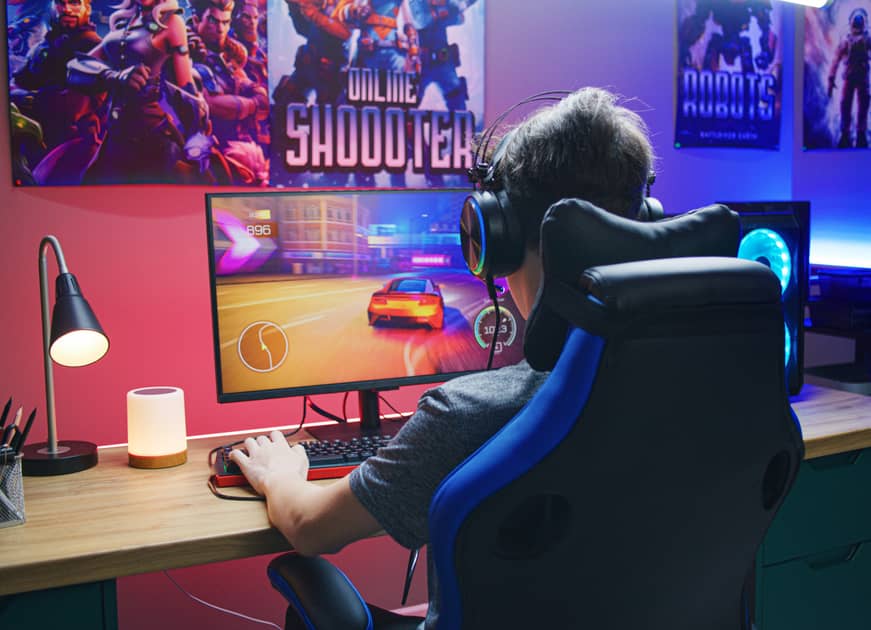Blitz News Digest
Stay updated with the latest trends and insights.
Level Up Your Life: How Video Games Make Us Better Humans
Discover how video games can elevate your skills, boost your mood, and make you a better human. Level up your life today!
Unlocking Life Skills: What Video Games Teach Us About Teamwork and Problem Solving
Unlocking Life Skills through video games has become an increasingly important topic in today's society. One of the most significant skills that players develop is teamwork. Many multiplayer games require players to collaborate, communicate, and coordinate their efforts to achieve common objectives. For instance, in games like Overwatch or League of Legends, players must strategically combine their unique abilities, relying on each individual to contribute to the success of the team. This reliance not only enhances their gaming experience but also mirrors the dynamics of working in real-world teams, teaching players the value of cooperation and shared goals.
In addition to teamwork, video games also foster critical problem-solving skills. Players are often placed in complex scenarios that require quick thinking and creativity to navigate. For example, puzzle-based games like Portal or The Legend of Zelda challenge players to think outside the box, encouraging them to devise innovative solutions to intricate problems. This skill is transferable to real-life situations, where individuals frequently encounter challenges that demand similar problem-solving tactics. As such, video games not only entertain but also equip players with essential abilities that are valuable in personal and professional aspects of life.

The Science Behind Gaming: How Playing Video Games Boosts Mental Health
The science behind gaming reveals that playing video games can significantly enhance mental health by providing a range of psychological benefits. Research shows that engaging in video games helps to reduce stress and anxiety levels, allowing players to unwind after a long day. Additionally, the immersive experiences offered by various game genres can lead to improved mood and increased feelings of social connection, particularly in multiplayer settings where collaboration and teamwork are key. This social interaction is crucial, as it combats feelings of loneliness, fostering a sense of belonging and community among gamers.
Moreover, video games can positively impact cognitive skills such as problem-solving, critical thinking, and adaptability. Many games require players to think on their feet and make quick decisions, thus enhancing their cognitive flexibility. According to studies, players who regularly engage in strategy-based games often demonstrate higher levels of creativity and better memory retention. By stimulating the brain in such engaging ways, gaming not only serves as a source of entertainment but also contributes to overall mental well-being, making it a valuable tool in promoting a healthy mind.
Are Video Games the Key to Developing Resilience and Adaptability?
In today's fast-paced digital world, video games are often seen as mere entertainment, but emerging studies suggest they might play a significant role in developing essential life skills, particularly resilience and adaptability. Through immersive narratives and complex gameplay mechanics, players are frequently placed in challenging scenarios that require quick thinking and problem-solving. As they navigate these virtual environments, they learn to bounce back from failure, adapt their strategies, and persist in the face of obstacles—traits that are invaluable in real-life situations.
Moreover, many video games emphasize teamwork and communication, fostering a sense of community among players. Team-based challenges encourage individuals to collaborate, share strategies, and support one another, which cultivates both resilience and adaptability in social situations. Engaging with diverse groups of players also exposes individuals to various perspectives and approaches, further enhancing their ability to adapt to new challenges. Thus, while video games may be dismissed as simple pastimes, their potential to equip players with critical life skills cannot be overlooked.